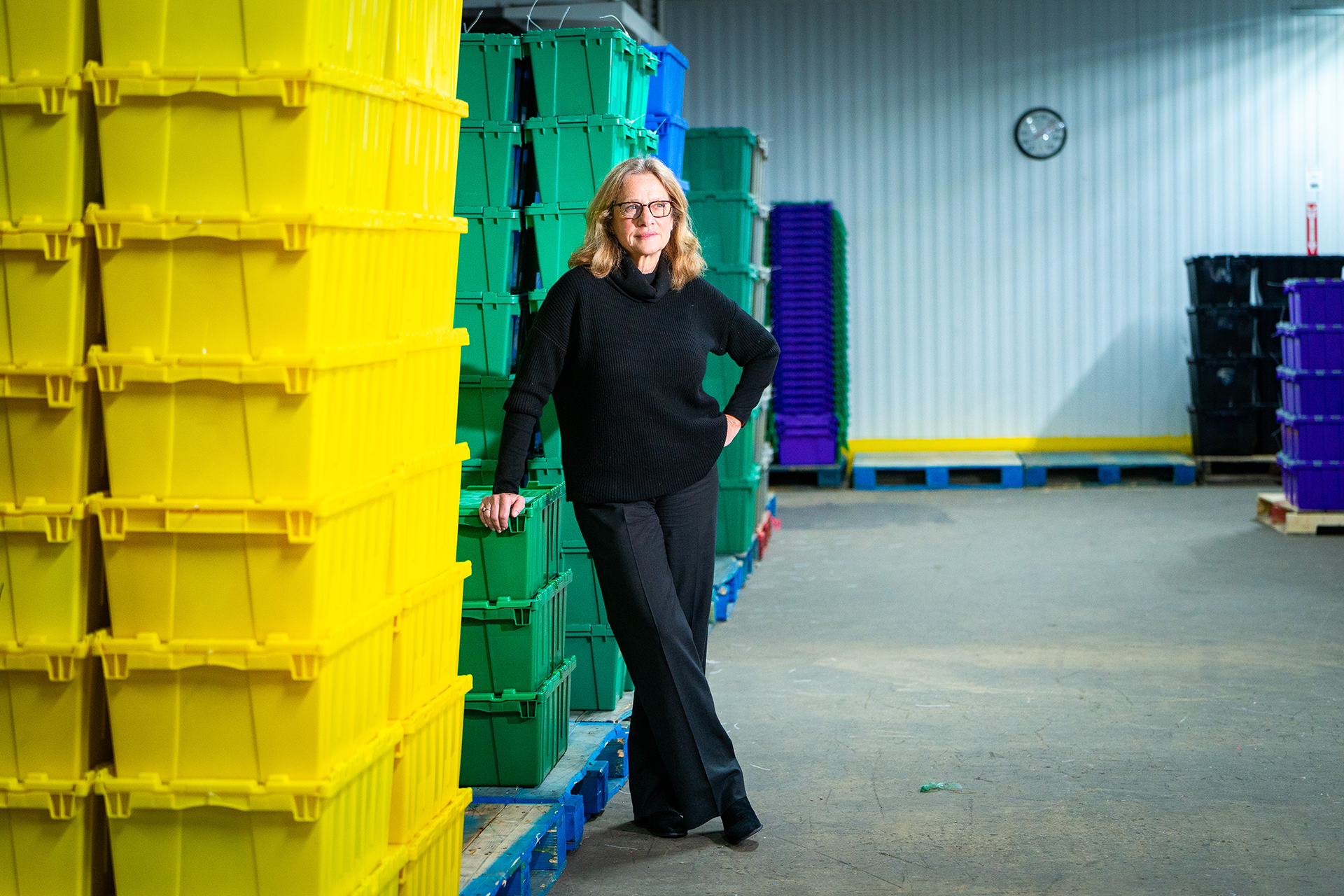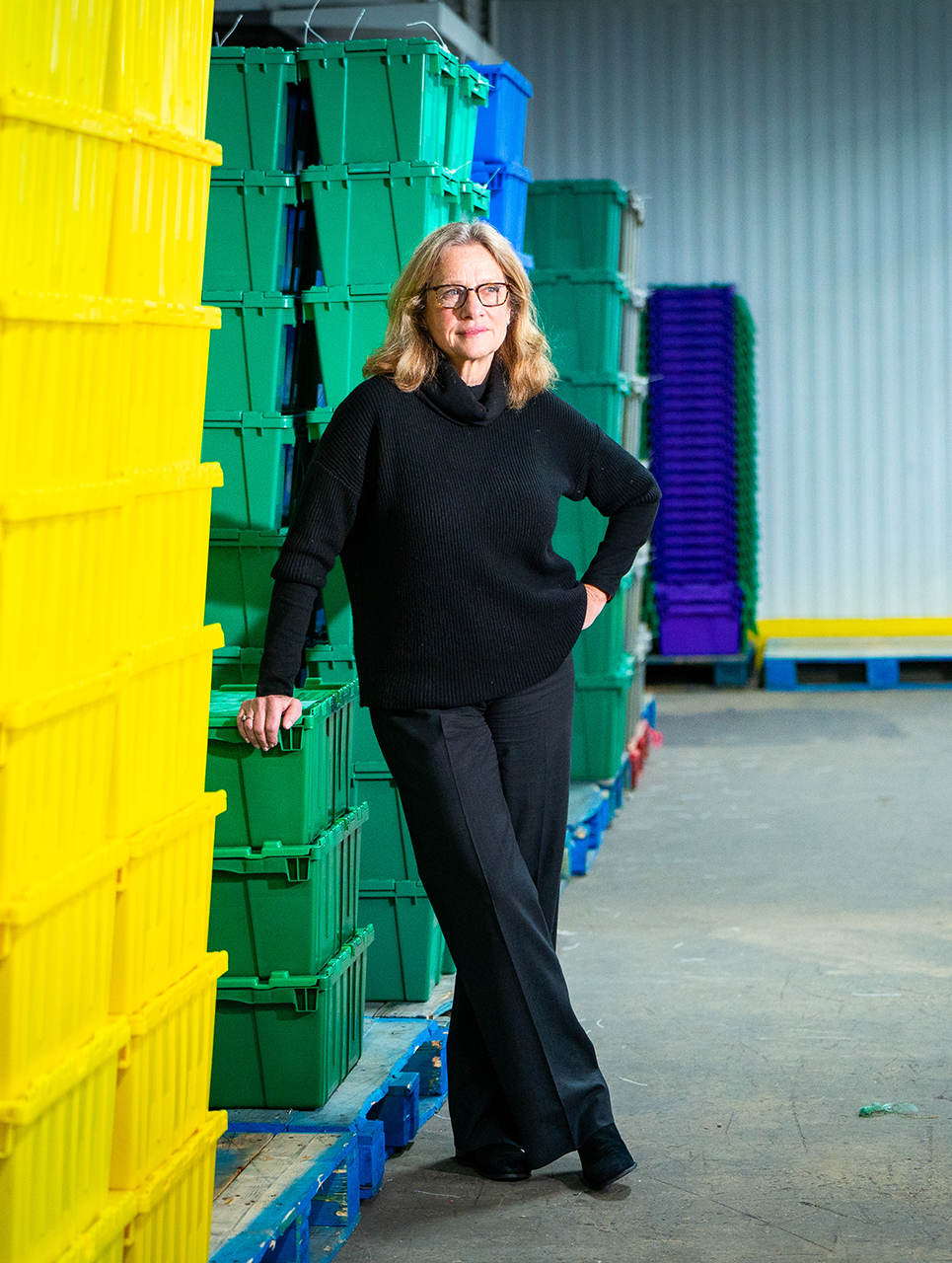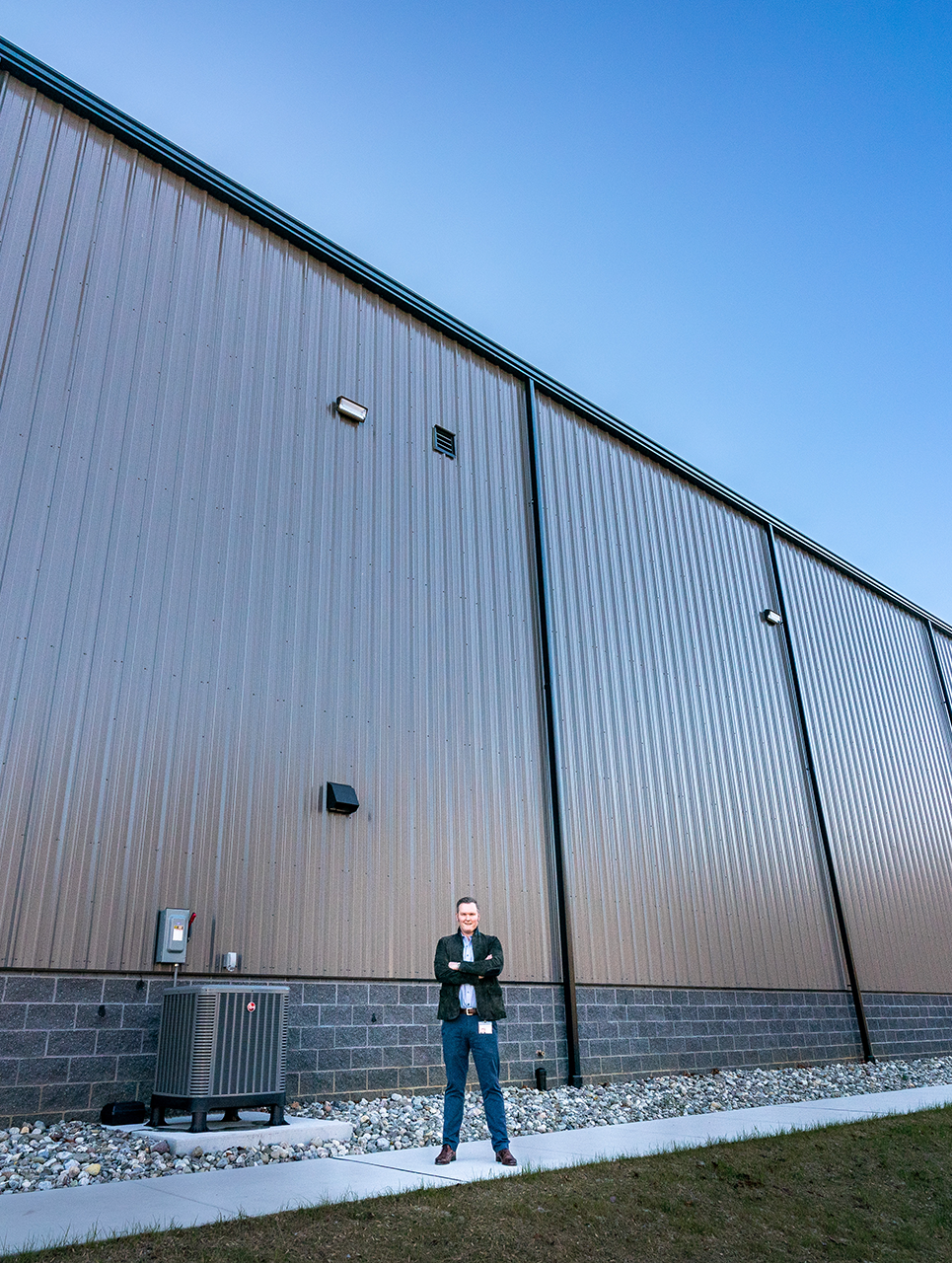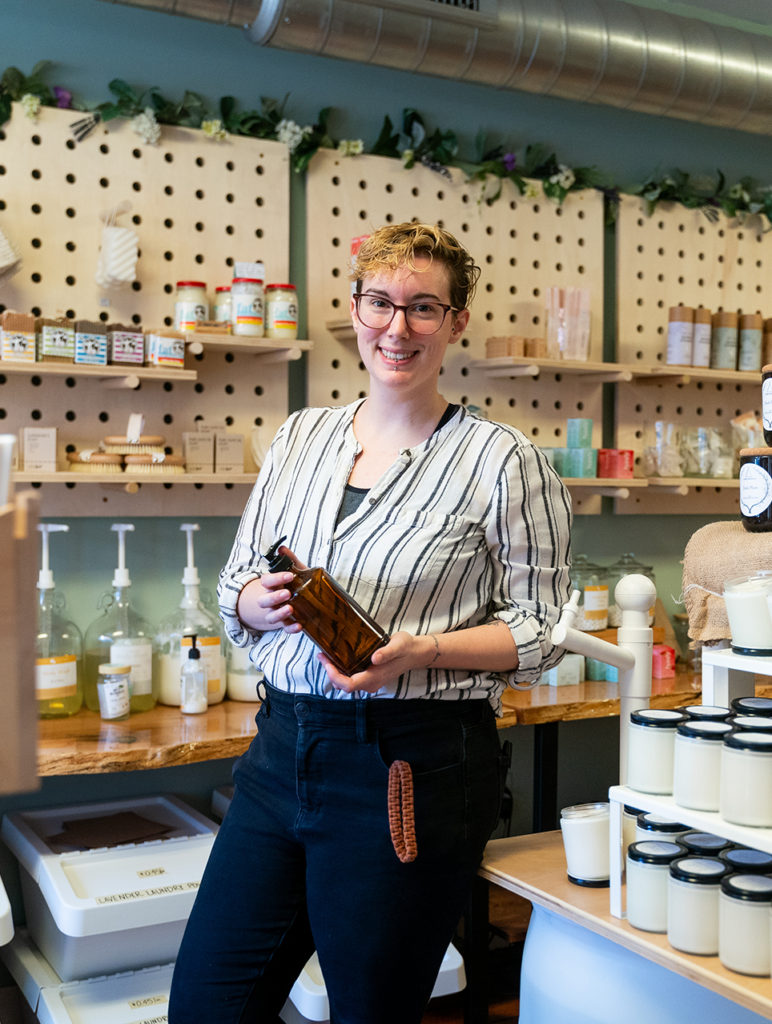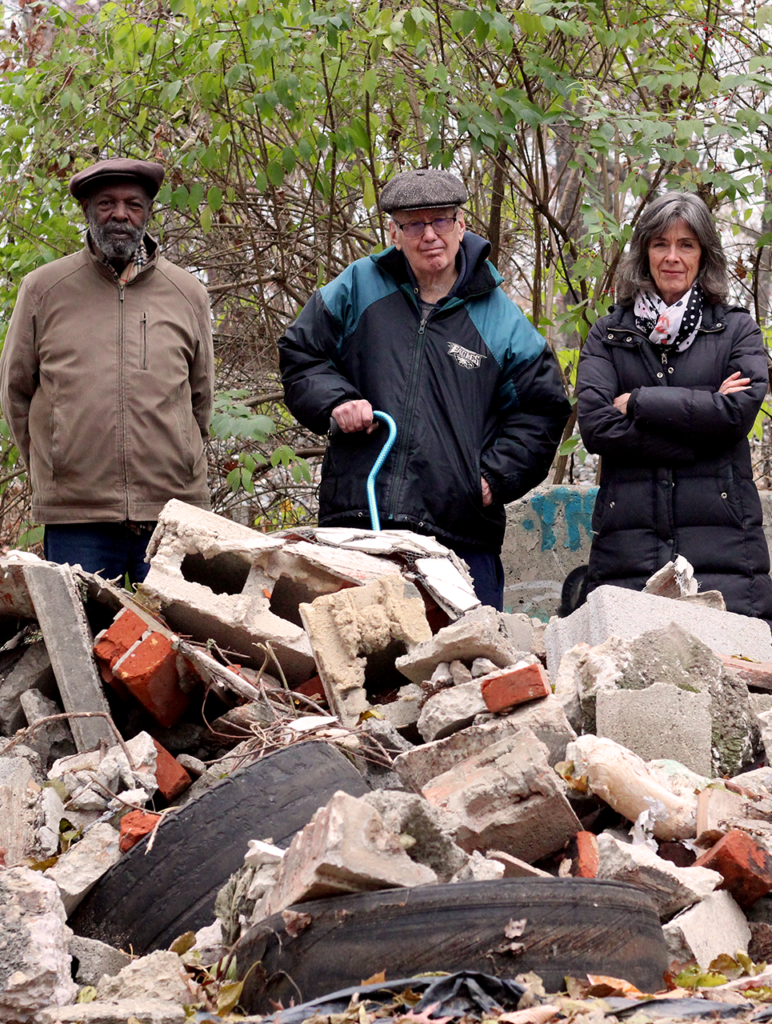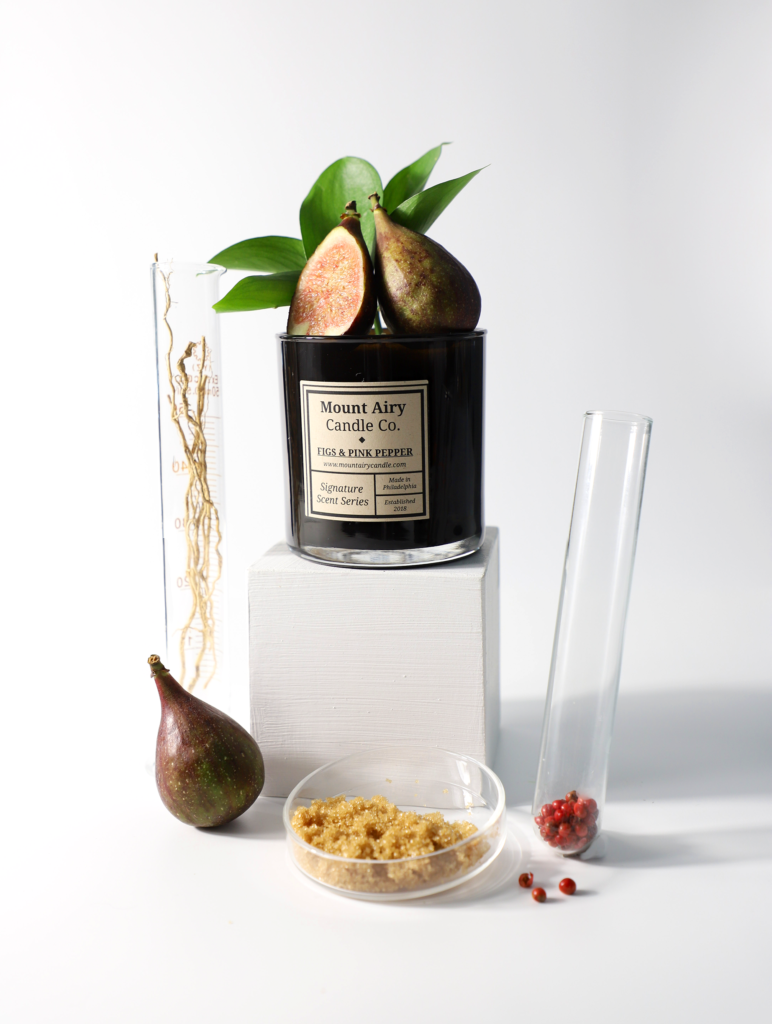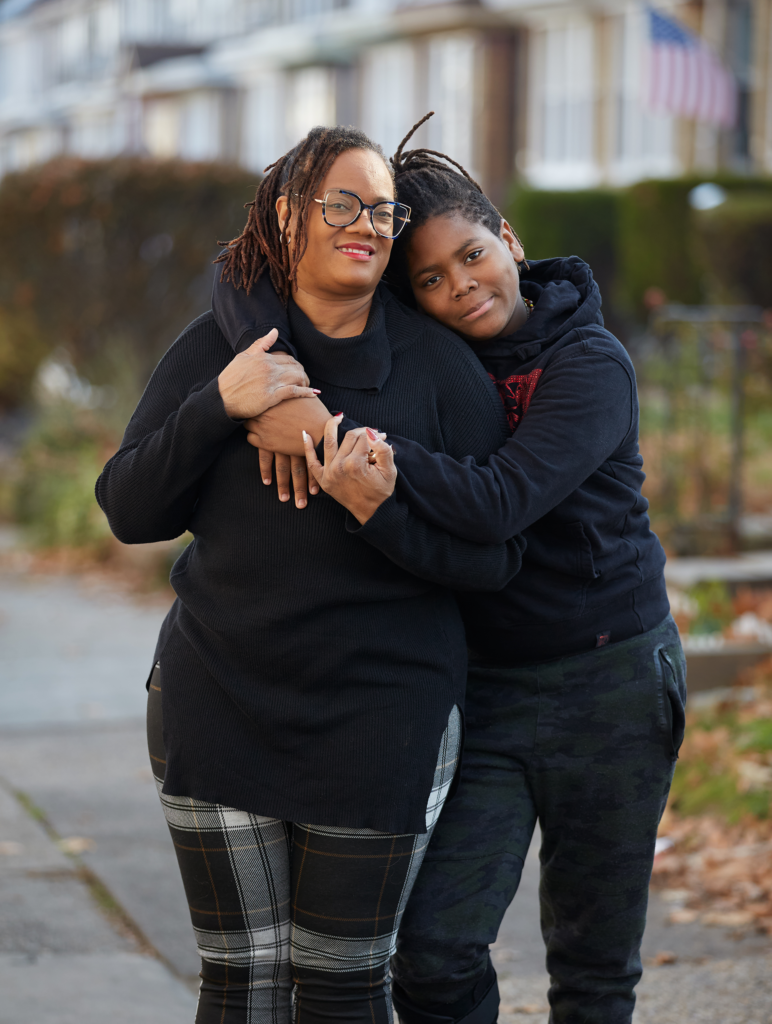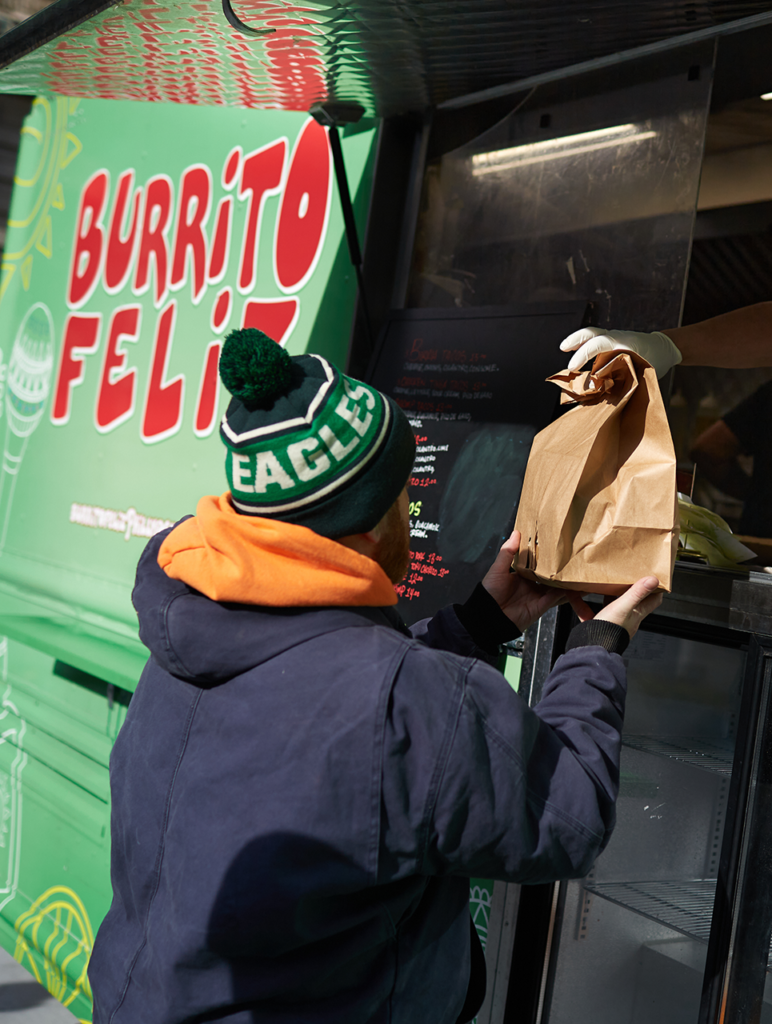Four years ago, Re:Dish CEO and founder, Caroline Vanderlip, set out with the goal of reducing the amount of plastic waste in the United States. The U.S. alone has produced 8.3 metric tons of plastics since 2018 and production is expected to triple by 2050, a report compiled by nonprofit ocean conservation organization Oceana shows. Most of it ends up in landfills, or worse yet, in our soils, groundwater or animals’ stomachs. Seeing the dire need for a sustainable alternative for plastic dining ware, Vanderlip and the new Re:Dish team began working to decrease single-use plastic consumption in New York state. Now the sustainable dishware company is expanding to the Philadelphia region.
“When I started researching, I discovered the concept of the circular economy,” Vanderlip says. “I found that there was a tremendous business opportunity, as well as an opportunity to really impact climate change.”
Instead of creating a product that could be used once and thrown away, Re:Dish formulated a variety of containers and cups with lids made of FDA-approved food-grade polypropylene that can be reused more than 1,000 times. Re:Dish offers each of their clients a custom plan, but the basic process is the same: each single-use ware is replaced by Re:Dish sustainable ware, employees and staff return the dishes to the designated Re:Dish Drop-off bins after use and the Re:Dish team collects and washes them in their facility.
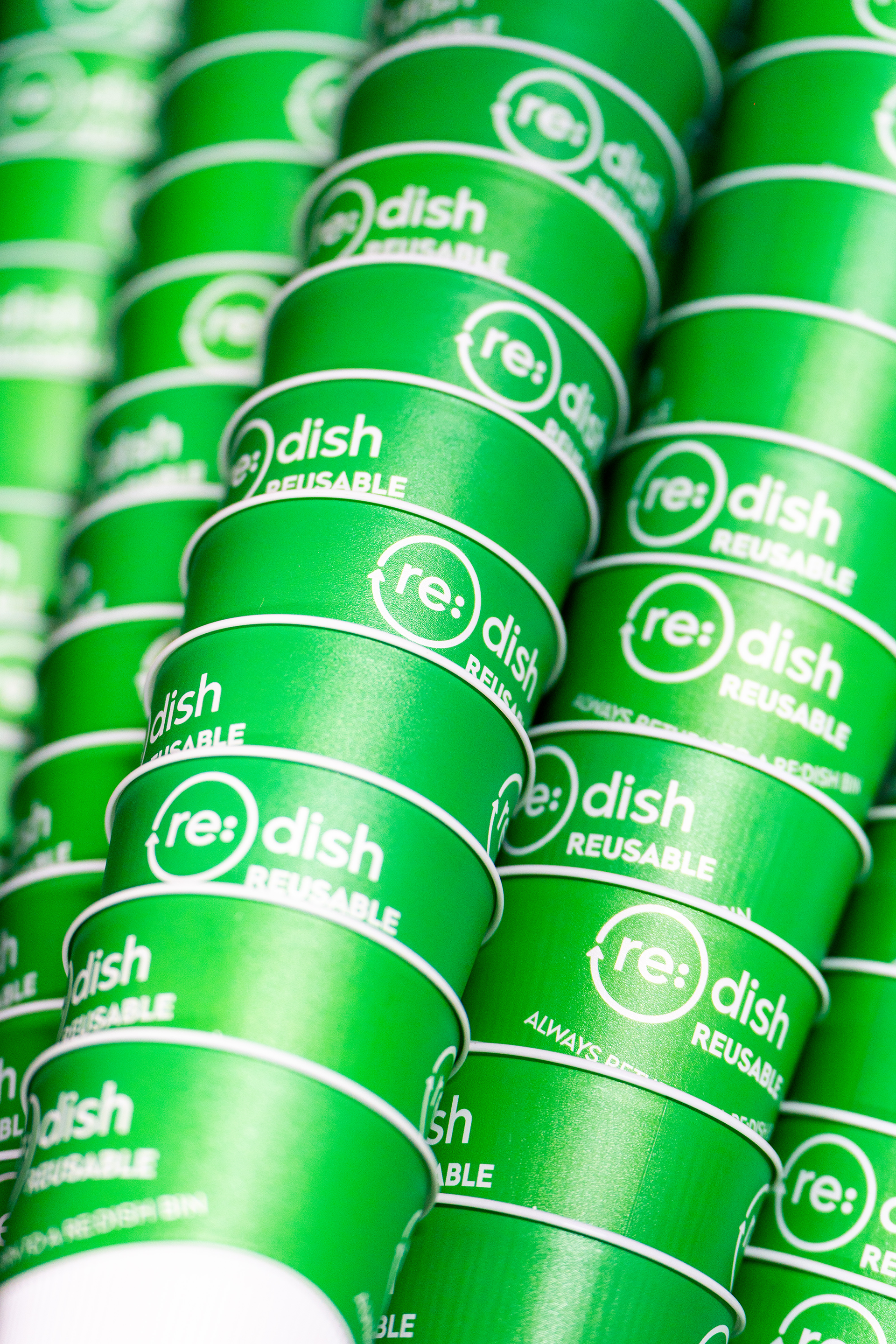
The company uses an industrial dish washing machine that washes Re:Dish products at a minimum of 170 degrees Fahrenheit, incorporates both washing and drying to ensure that each dish is up to safety standards and uses eco-friendly chemicals deemed safe for human and environmental health. On top of that, the machine itself was made to be sustainable.
“We have worked with our manufacturer to ensure that the actual dish washing machine conserves water and energy,” says Vanderlip. “Essentially, the machine uses water four times before it disposes of it. The dirtiest water is at the front end and the cleanest water is used to rinse at the back end.”
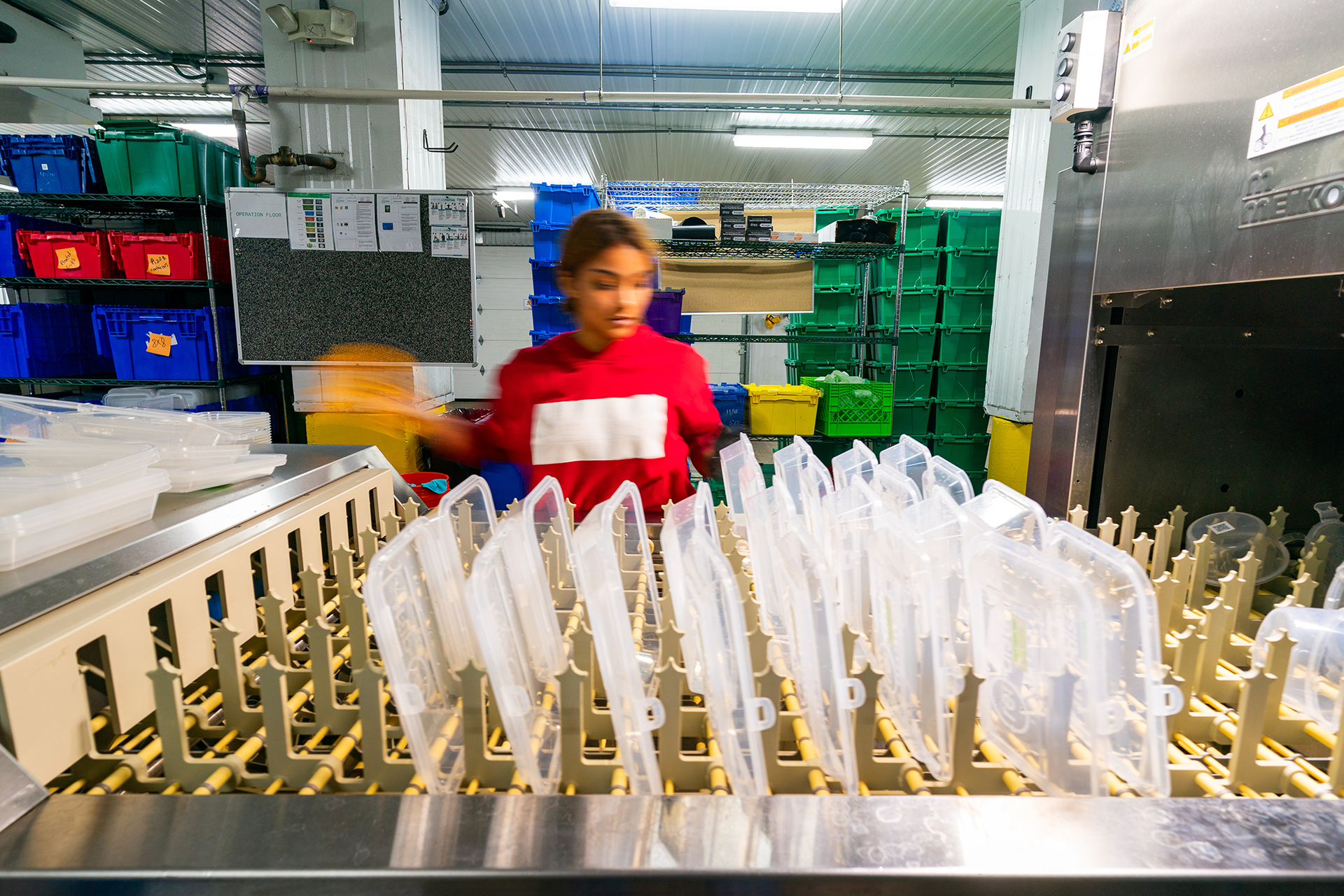
Re:Dish is still building their clientele, which includes schools, event venues and municipalities. According to Vanderlip, the team is mainly working with Fortune 500 companies that are looking to decrease their waste production in the workplace. For example, Barclays Corporate and Investment Bank in New York City began working with Re:Dish in June of 2022 and then expanded to the Barclays US Consumer Bank headquarters location in Wilmington, Delaware in 2023.
According to Frances Cabrera, vice president of citizenship at Barclays in New York City, the bank decided to get involved with Re:Dish not only to pursue their own sustainability goals, but also to support a growing company.
Like many of Re:Dish’s clients, Barclays has their own goals to reach lower carbon emissions. Casey Cullen-Woods, vice president of global sustainable design and operations, says that a transition toward a low-carbon economy is a challenge businesses are facing right now.
While Barclays has only been working with Re:Dish for a year, Cullen-Woods says that they have already noticed significant strides toward sustainability in all of their offices with Re:Dish products, having already saved 150,000 single-use plastics from landfills. Re:Dish is in all of Barclays’ East Coast campuses in Delaware, New Jersey and New York.
According to Vanderlip, Re:Dish’s environmental impact can be measured in a variety of ways, including company surveys.
“We did a survey about a year ago with a client, and we discovered that one-third of the respondents had taken the idea of circularity in other aspects of their lives because of the incorporation of Re:Dish in their corporate environments,” Vanderlip says.
Customers can also track impact by calculating statistics on their website. For example, if 1,000 employees use one Re:Dish container a day for just one year, 19,906 disposables will be saved from landfills, 2,297 cars will be kept off the roads and 40,410 gallons of water will be saved. This means that every Re:Dish client is reducing their greenhouse gas emissions by 77%, and reducing their water waste by 67%.
Re:Dish aims to improve on their own current diversion rate of 90%. They’ve sent 2,400 pounds of organic materials from used Re:Dish containers to compost facilities, and partnered with the NYC company aNYbag to transform their plastic waste into reusable bags.
While Re:Dish has made strides toward complete sustainability, Vanderlip believes there is still work to be done. Re:Dish products are shipped to the facilities in plastic containers, which is preventing them from achieving closer to a 100% waste diversion rate. Additionally, although Re:Dish does use recycled water to wash used dishes, there is still new water being used at the beginning of the process. These two hindrances make the zero waste goal more difficult to achieve.
You teach somebody at eight years old what reusability is, and they learn it for life. They don’t form the bad habits of using single-use products.”
— Caroline Vanderlip, Re:Dish CEO
Re:Dish is also working to expand their presence in schools. Vanderlip states that they are currently servicing five K-12 schools in New York, and hope to soon reach public schools in the Philadelphia area and beyond. “The problem is that the materials they use are inexpensive, but bad for the environment,” she says. “It’s hard to bridge the gap between what they’re currently using and the cost of sustainability.”
Vanderlip says that teaching sustainability to children is now more vital than ever. “You teach somebody at eight years old what reusability is, and they learn it for life. They don’t form the bad habits of using single-use products.”
